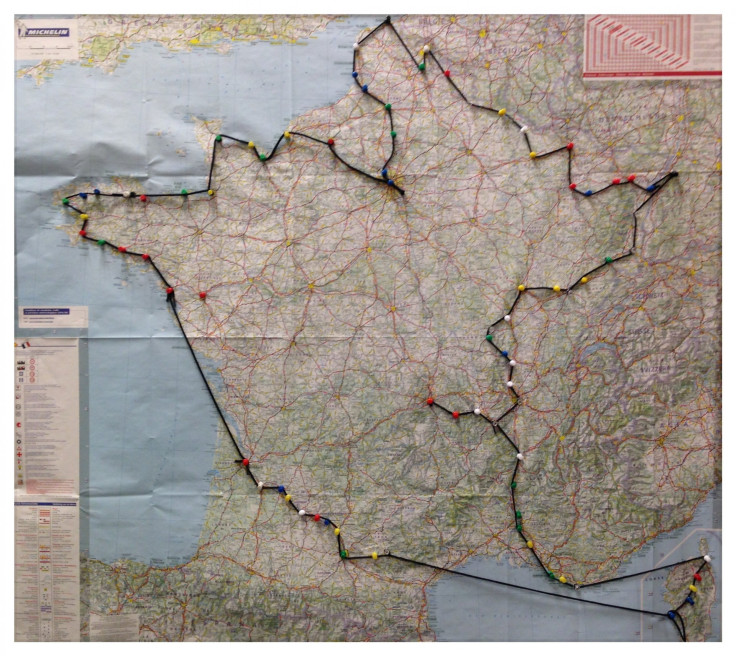France, A Country Without Hope And No Future: MP

A member of France’s National Assembly has issued a grave warning about the state of his countrymen and what they think of the future, given a worsening climate of unemployment, government austerity and racial hostility. Jean Lassalle, who represents the Pyrénées-Atlantiques region in the southwestern corner of France, has spent the last eight months walking the length and breadth of the nation in order to gauge the mood of the people. Having traversed some 6,000 kilometers (3,730 miles) of terrain, he says his countrymen are “without hope.”
Arriving in Paris at the end of his journey, he told Europe 1 Radio, “Everywhere I went I witnessed a crisis in the standard of living, a loss of identity and the loss of a sense of a common destiny.” In addition, Lassalle said Frenchmen are "more resigned, without hope and without a future. Our compatriots do not see the future.” Lassalle also noted that rural French were particularly angry with the Paris government. “People would tell me: ‘Look at the state you have left our country in.’ There is no more industry, farming is in crisis, just one in 10 children of farmers grudgingly says they want to carry on in agriculture,” he explained. “The countryside has lost its perspective, and it isn’t any better in the cities. We all know the state of France’s suburbs, even those that have been rebuilt.”
France24 reported that LaSalle began his personal “tour de France” in April and walked almost uninterrupted in a clockwise direction around the country.
The politician also said he was impressed by how candid the people he met were. “Once they knew what I was doing, I felt a strong sense that they were expressing themselves as a civic duty, choosing their words carefully,” he wrote on his blog. “There was a solemnity and a dignity about it, despite everything they had to say.”
The ordinary French person is especially frightened about an increasingly globalized world and France’s ever-shrinking power and prestige. “We live in a world that is changing out of all recognition,” he told Europe 1. “We [the government] have failed to find ways of explaining to the citizens of this country exactly what this change means.”
Racism is also a big problem, he claimed, even in the smallest villages where hardly any immigrants live. “This is racism that seems totally unashamed,” he told Le Monde newspaper. “It is a wholesale rejection of ‘the other’ and often expressed with excessive aggression.” Lassalle also said he has witnessed a revival of anti-Semitism -- which has a long and shameful history in France -- which he believes is linked to money, that is, that Jews are perceived to have amassed wealth that others lack. He also fears that the extreme right-wing National Front will receive massive support in next year’s European elections.
Lassalle plans to file a report in parliament on the observations he made on his walking tour, by the end of February. “Meeting people around the country was a deliberate act as an elected member of France’s parliament … and a bid to raise awareness of the issues faced by our citizens,” he noted on his blog. “Things cannot stay the way they are now.”
Douglas Yates, a professor of political science at the American Graduate School in Paris as well as the American University of Paris, shares Lassalle’s melancholic view of France. “Life is very bad for many people, yet at the same time, it is very good for others,” he said in an email communication. “The rising gap between the experiences of those who have, and those who have not, is creating this apparent paradox.”
Yates added: “Overall, the perception of decline, the sense that the future will be worse than the past, and the pessimism about the possibility of politics to produce progress, is something particularly pronounced among the French. … France is in decline, but it is a long, slow decline."
© Copyright IBTimes 2024. All rights reserved.











